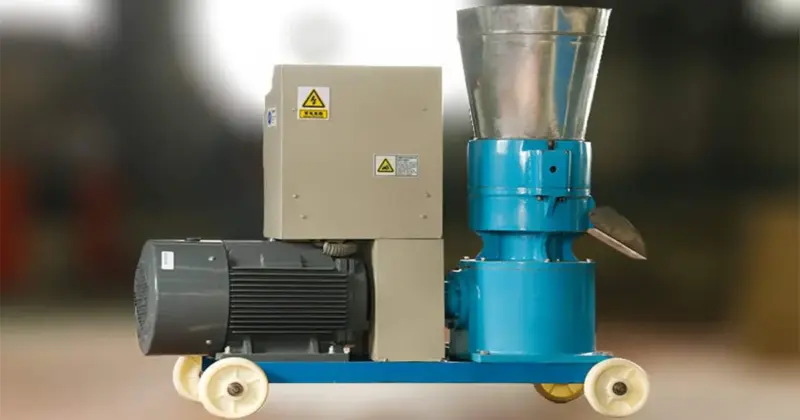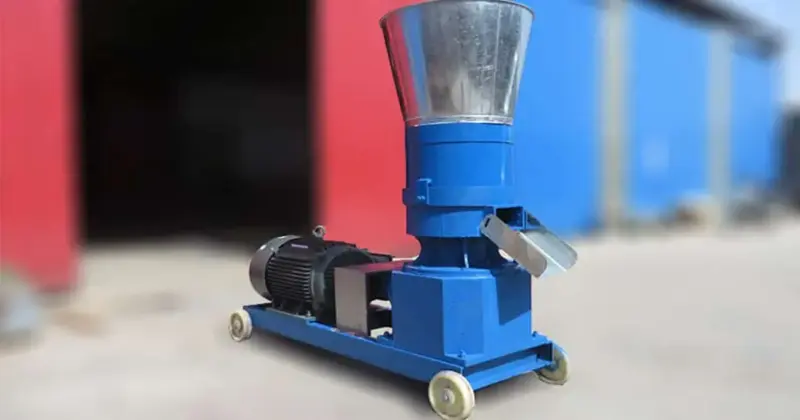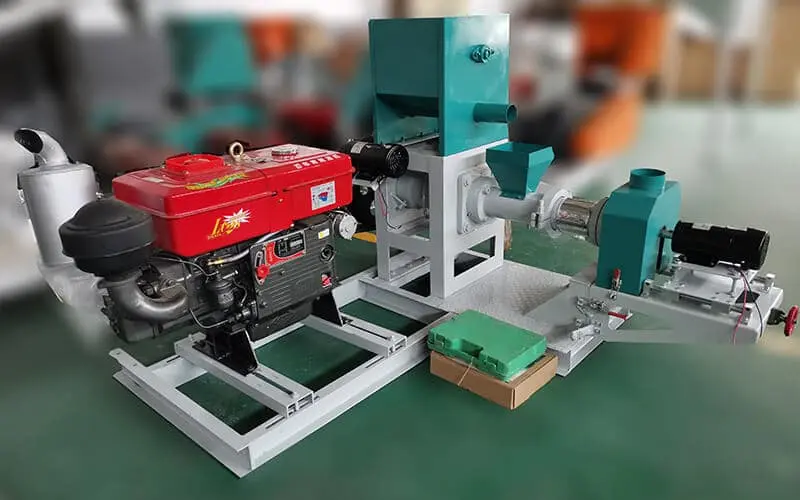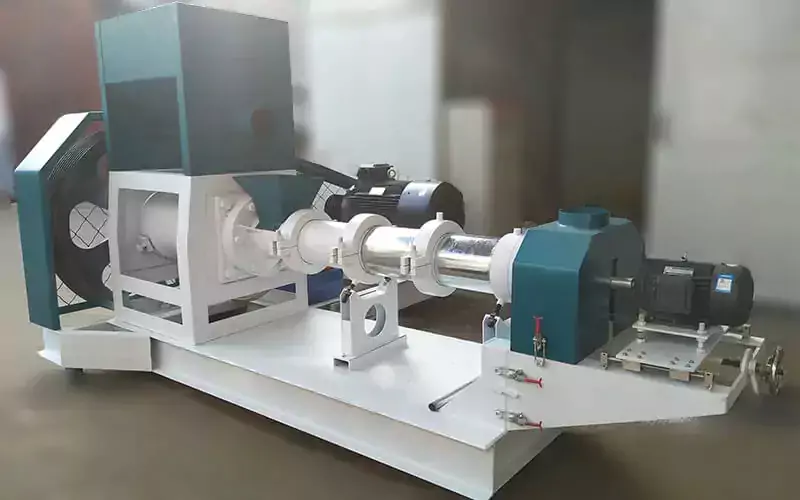Introduction feed pellet machine in Netherlands
For farmers across the Netherlands, efficiency and quality are everything. The cost of specialized commercial feed is high, and you’re always looking for ways to improve your operation’s sustainability and control your costs. An on-farm feed pellet machine in Netherlands is a powerful tool that puts you in control. It allows you to use your own high-quality ingredients to create fresh, precisely formulated feed for your livestock.
This guide is written for you, the Dutch farmer. We’ll cover the benefits, the types of machines best suited for your farm, where to find suppliers in the Netherlands, and what to consider before you invest.
Why a Pellet Machine is a Smart Investment for a Dutch Farm
Investing in your own feed pellet machine in Netherlands offers clear advantages that fit well with modern Dutch farming.
Achieve Precision Nutrition and Full Ingredient Control.
Making your own feed allows you to create a ration with the exact nutritional profile your animals need. This is key for high-performance dairy, poultry, or pig farming. You have full control over every ingredient.
Lower Your Feed Costs with Local Ingredients.
You can use common and cost-effective Dutch raw materials. These include grains like barley (gerst) and wheat (tarwe). You can also use high-quality by-products like sugar beet pulp (bietenpulp).
Improve Farm Sustainability and Reduce Waste.
Pelleting significantly reduces feed waste in the barn. It also allows you to use by-products from your own or neighboring farms. This improves the circularity of your operation (kringlooplandbouw).
Ensure a Consistent Supply of High-Quality Feed.
Having your own machine means you have fresh, consistently made feed available on demand. This avoids reliance on external suppliers and potential price fluctuations in the market.


What Feeds Can You Make? For the Netherlands’ Key Livestock
A feed pellet machine in Netherlands is versatile. You can make feed for many different animals common on Dutch farms:
- High-Energy Dairy Cattle Feed.
- Specialized Poultry Feed (for Layers and Broilers).
- Precisely Formulated Pig Feed.
- Feed for Goats and Sheep.
- High-Fiber Pellets from Grass or Lucerne.
Types of Machines Best Suited for the Dutch Context
It is important to choose a feed pellet machine in Netherlands that fits the local infrastructure and common farm scale.
Electric Flat Die Mills:
“These are the most common and practical choice for most small to medium-sized farms in the Netherlands. With a reliable and robust electrical grid, electric motors are efficient, quiet, and easy to maintain. You will need a proper three-phase power supply (krachtstroom) for most professional models.”
PTO-Driven Pellet Mills:
“This is a good choice for farmers who want more flexibility. It is also useful if you need to operate the machine in a location without a power outlet. It uses your tractor’s engine for power.”
Larger Ring Die Mills:
These are for large, commercial feed production businesses. They are also used by major agricultural cooperatives (coöperaties).


Finding Suppliers in the Netherlands: Where to Look
Finding a good, reliable supplier of feed pellet machine in Netherlands is a key step.
Look for Established Agricultural Machinery Dealers (Landbouwmachines Dealers).
The best place to start is with established dealers who sell other farm equipment. They often represent reputable European brands and can provide service and support.
Visit Major Agricultural Trade Shows.
Key Dutch and regional events like AgroTechniek Holland are an excellent place to see a wide range of machinery in person. You can speak directly with suppliers and manufacturers there.
Use Online Platforms like Marktplaats and Agriaffaires.
You can search on these popular platforms in the Netherlands for both new and used machines from local sellers.
Consider European Brands and Local Support.
There is a big advantage to buying from well-known European manufacturers. This includes those from Germany, Italy, or the Netherlands itself. This often means easier access to high-quality machines, spare parts, and good technical support.
A Practical Checklist for Buying a Machine in the Netherlands
Think carefully before you make a purchase. Ask yourself these important questions:
What animals are you feeding?
This is important because it determines the size of the pellets you will need to make.
How big is your farm?
This will determine the capacity of the machine you need. This is measured in kilograms per hour.
Do you have the right power supply?
“Check your barn or workshop. Do you have a three-phase (krachtstroom) connection available? Most professional pellet mills will require this for their electric motors.”
Look for High-Quality Construction and Safety Features (CE Marking).
“In Europe, quality and safety are key. Look for a machine that is well-built with strong materials and has a CE Marking. This shows that it meets European Union safety standards.”
Ask About After-Sales Service and Spare Parts.
“Before you buy, ask the dealer a direct question: ‘If I need a new die or roller, do you have it in stock here in the Netherlands, or does it have to be ordered from the factory? How long will that take?'”
Cost & Financing Considerations in the Netherlands
- Typical Price Range (in Euros – €). Quality European-made machines are an investment. To give a very rough idea, a good quality, small-scale electric machine might start from a few thousand Euros and go up from there. It is absolutely necessary to get direct, current quotes from suppliers.
- Looking for Financing Options.
- You can inquire about asset financing or agricultural loans from major Dutch banks that specialize in agriculture, such as Rabobank.
- It is also a good idea to look into any available government or provincial subsidies (subsidies) for sustainable farming or on-farm investments.
Conclusion
For farmers in the Netherlands, a feed pellet machine is a powerful investment in efficiency, quality control, and sustainability. It allows you to create precise, high-quality feed using local resources. By doing careful research and choosing a robust, high-quality machine, you can take a major step towards optimizing your farm’s feeding program and improving your bottom line.
FAQ About Feed Pellet Machine in Netherlands
What are the most common ingredients for making animal feed in the Netherlands?
A: Common, locally available ingredients include grains like barley (gerst) and wheat (tarwe). High-quality by-products are also very popular, such as sugar beet pulp (bietenpulp) from the sugar industry.
Do I need a diesel machine in the Netherlands?
A: Usually not. The electrical grid in the Netherlands is very reliable. An electric machine is almost always the more efficient, quieter, and cheaper option to run. You will, however, likely need a three-phase power connection (krachtstroom).
Where can I see these machines before I buy one?
A: The best place to see a wide variety of machines from different brands is at a major agricultural trade show like AgroTechniek Holland.
What is a “CE Marking” and why is it important?
A: The CE Marking is a certification mark. It indicates that a product meets the high health, safety, and environmental protection standards of the European Union. When you buy a machine with a CE Marking, you have an assurance that it is built to a high safety standard.
Can I make pellets from grass from my own fields?
A: Yes, absolutely. Making pellets from your own grass (graspellets) is a popular way to preserve its nutritional value. However, it requires careful management of the drying and grinding process before the grass can be pelleted successfully.

